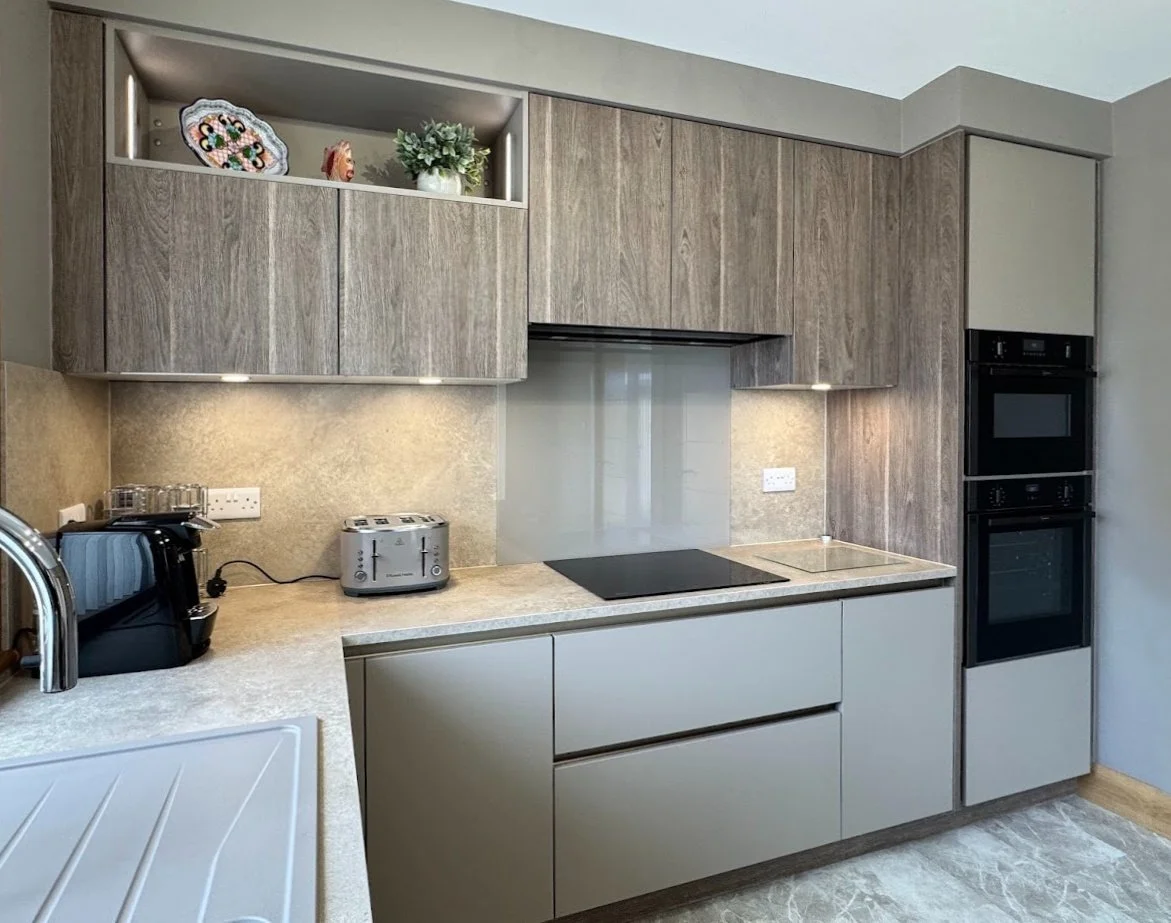Planning for a Kitchen Renovation
Planning a kitchen renovation is an exciting yet challenging task.
Whether you're considering a full kitchen extension, or a kitchen remodel, having a clear plan will ensure a smooth and successful project.
Here are some key factors to consider as you embark on this journey.
Budgeting for Your Kitchen Renovation
Budgeting for your kitchen renovation is one of the most important steps in the planning process. It helps you balance your wish list with what is realistically achievable.
Knowing how much you can afford will help guide your choices and shape conversations with your kitchen designer, ensuring you focus on options that suit your style and budget. Being upfront about what you’re comfortable spending is key to getting the best value for your money, as it allows your designer to recommend solutions that maximise impact without overspending.
Remember to include additional expenses in your calculations, too, such as building work, plumbing, electrical work, plastering, flooring, and painting, as these can quickly add up and significantly affect your overall spending.
Planning Permissions and Structural Changes
If you live in a grade-listed building, you’ll need planning permission for certain kitchen renovations. Even if you don't, consider whether structural changes like knocking down a wall and expanding the area could improve your space. Consulting with a kitchen designer or builder early on will help identify these requirements and ensure all legalities are handled before work begins. Addressing this at the outset avoids costly delays and gives you peace of mind that your dream kitchen is being built on a solid foundation, both structurally and legally.
Choosing the Right Kitchen Style
Deciding on the type of kitchen you want is the obvious next step. Spend time browsing inspiration on Pinterest, Instagram, kitchen retailer websites, and magazines. Create a vision board or a digital collection of styles, colours, and features you love. This will help convey your ideas clearly to your kitchen designer and in your own head.
Creating Your Kitchen Wishlist
Draft a wish list detailing everything you want in your new kitchen. Break this down into must-haves and nice-to-haves. This list will help your kitchen designer prioritise within your budget, ensuring the essentials are covered first.
Finding a Reliable Kitchen Company
Choosing the right kitchen company is vital. Independent retailers often provide better quality kitchens and customer service than larger chains. They offer personalised attention and quicker responses to queries. Look at their reviews and past projects to gauge their reliability and quality of work.
Visiting a Kitchen Showroom
Before making any final decisions, visit kitchen showrooms to see the designs in person and meet the team. This is a great opportunity to ask questions and get a feel for the quality and style of their work. When you're ready, schedule a design consultation to discuss your ideas in detail.
Understanding Time Frames
When you sit down with your chosen kitchen designer, ask them about the project timeline. Knowing when the work will start and end helps you plan accordingly and manage expectations. It also ensures that any disruptions to your daily life are minimised.
Preparing for Kitchen Installation
As the renovation date approaches, start decluttering your current kitchen. Dispose of any unused or expired items. Set up a temporary kitchen space where you can prepare simple meals and make drinks. This is the perfect time to make use of small kitchen appliances like an air fryer. Plan meals that don't require a fully operational kitchen to make the transition smoother. When the renovation is imminent, it's time to pack up your kitchen belongings and store them away until the work is complete.
Remember that kitchen renovations mean lots of people in the home and the use of tools, which will mean a bit of noise and disruption; consider small children, pets and working from home in this period.
Planning a kitchen renovation involves careful consideration of various factors, from budgeting to choosing the right kitchen company. By following these steps, you can ensure a successful remodel that meets your needs and enhances your home. For expert advice and high-quality kitchen designs, visit Our Kitchen Showroom in Fraserburgh and start your journey today.



